Premium Only Content
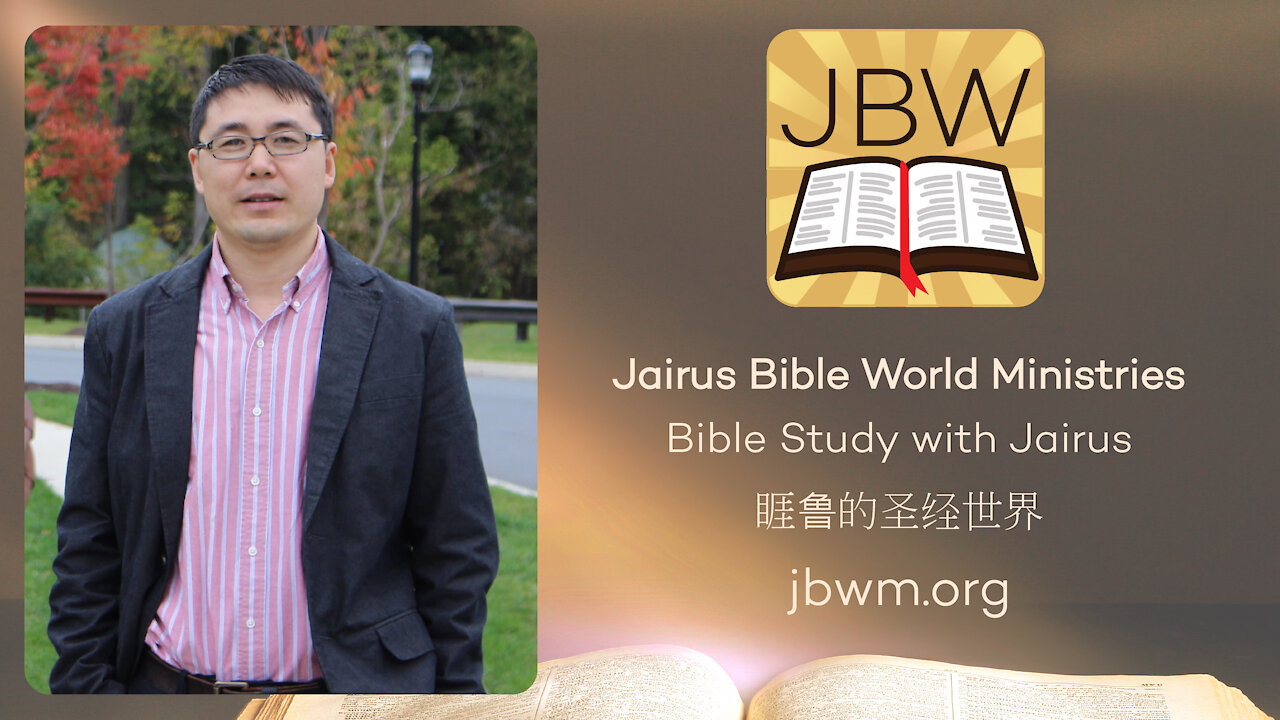
Bible Study with Jairus - Numbers 28
Closeness with God through Prayer
Bible Study with Jairus - Numbers 28
Habits of Gratitude and Prayer
Have you ever been speeding through a parking lot when your car suddenly jolted, bouncing violently up and down? You hit a speed bump. The purpose of speed bumps is to force us to slow down our vehicle and pay attention to our surroundings. In the same way, God has created rhythms and healthy rituals that help his people slow down and focus on him. That’s the message of Numbers 28.
This chapter explains the habit of morning and evening sacrifices, as well as the special offerings during sacred festivals. In the New Testament, believers offer prayers to God instead of sacrifices. Revelation 5:8 says that the elders in heaven were “holding golden bowls full of incense, which are the prayers of God's people.” (NIV) In other words, our prayers are the offerings that we present to God each morning and evening.
In addition to daily prayers, we may fast once a week or set aside a few days each month to pray. Having special dedicated times to come close to God allows us to offer more to God and maintain an intimate relationship with Him. Believers are not required to observe Israelite festivals, but they may choose to do so if these festivals help them to slow down and focus on the Lord. I believe that the purpose of festivals is to allow us to slow down and focus on God rather than to obey the laws. This is the goal. When we slow down, still our hearts, and draw near to God in silence, our lives are changed. As we offer our prayers to God, we experience the closeness of Jesus Christ our Lord.
Numbers 28 gives us details about the Israelites’ offerings (vs 2). The people were to offer regular offerings (verses 3-8), a burnt offering every Sabbath (verses 9-10), a burnt offering at the beginning of each month (verses 11-15), burnt offerings for seven days after the Lord’s Passover (verses 16-25), and a burnt offering at the Feast of Weeks (also known as Festival of Harvest and Pentecost). In Numbers 29, the people were to offer a burnt offering at the Feast of Trumpets (verses 1-6), a burnt offering on the Day of Atonement (verses 7-11), and a burnt offering at the Festival of Booths (verses 12-38). These offerings cover all of Israel's festivals throughout the year.
The goal of these offerings is not to cover Israel’s sins, but to offer a pleasing aroma to God. Verse 2 says, “Command the people of Israel and say to them, ‘My offering, my food for my food offerings, my pleasing aroma, you shall be careful to offer to me at its appointed time.’” This verse clearly states that the aroma of these food offerings brought God pleasure, just like he was pleased by the aroma of Noah's offerings (Genesis 8:21). In the Old Testament, the pleasing aroma of burnt offerings is always mentioned.
But in the New Testament, we no longer offer bulls and lambs. Instead, we rely on the sacrifice of Jesus Christ. Hebrew 13:15 says, “Through him then let us continually offer up a sacrifice of praise to God, that is the fruit of lips that acknowledge his name.” This verse clearly states that when we offer our grateful prayers to God through Jesus Christ, they become worthy sacrifices. This kind of praise brings joy to God. Ephesians 5:20 also says, “Giving thanks always and for everything to God the Father in the name of our Lord Jesus Christ.”
READ MORE: https://jbwm.org/
-
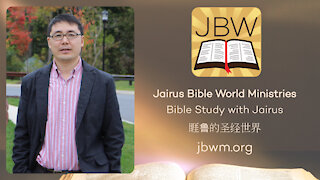 20:01
20:01
BibleStudyWithJairus
3 years agoBible Study With Jairus - Numbers 8
74 -
 25:39
25:39
BibleStudyWithJairus
3 years ago $0.02 earnedBible Study With Jairus - Numbers 7
174 -
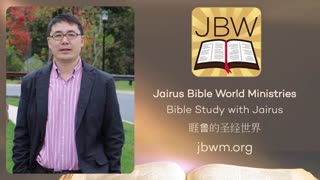 20:26
20:26
BibleStudyWithJairus
3 years agoBible Study With Jairus - Numbers 27
18 -
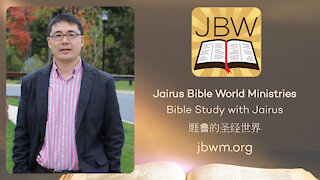 19:13
19:13
BibleStudyWithJairus
3 years agoBible Study With Jairus - Numbers 15
34 -
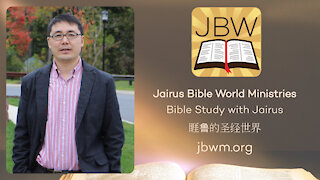 20:38
20:38
BibleStudyWithJairus
3 years agoBible Study With Jairus - Numbers 19
30 -
 3:42:32
3:42:32
Alex Zedra
11 hours agoLIVE! Chill stream before Thanksgiving!
161K25 -
 5:00:01
5:00:01
Pepkilla
14 hours agoDouble XP Zombies and Warzone ~
58.3K10 -
 0:46
0:46
Dr Disrespect
2 days agoIt's not just a stream... it's an experience
547K2.9K -
 1:28:27
1:28:27
Kim Iversen
1 day agoBOMBSHELL: Secret British Military Plot to Prolong the Ukraine War And Take Down The Grayzone
124K145 -
 11:54
11:54
Professor Nez
12 hours ago🚨CHILLING REVELATION: Tucker Carlson Reveals Dems NEXT PLAN to STOP Trump!
146K50